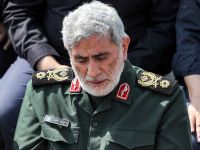The UAE Energy Minister said that he was not convinced on the need to have an emergency meeting of Organisation of the Petroleum Exporting Countries (Opec) in the wake of record drop in oil prices.
“There is a mechanism to call for an Opec meeting. Anyone can ask the Secretary General putting the reasons to have the meeting. What are we going to agree we need to be convinced. I am not convinced that Opec solely, unilaterally can change the strategy just because we have seen the low in the market,” Suhail Al Mazroui said at an energy forum in Abu Dhabi on Tuesday.
He said that the Opec strategy is working. “We have seen reduction in the yearly gradual increase in production from non-Opec nations. It’s working for the customers, with the customers allowing the market to balance itself.”
“The strategy of Opec is to allow the market share ... fair market share. Let the people compete and price be the judge.”
He said that there is going to be a correction before the end of 2016 in oil prices.
“We are going to see a correction. The market fundamental tells us this. The increase in demand at the end of 2015 was higher. The market will solve it. That is the only fair assessment of the current situation.”
“First six months going to be tough. It will be gradual. We will get out of the mess. We tried in Opec to help as much as we can.“
Earlier during the forum, Opec president Emmanuel Ibe Kachikwu said that he expects an extraordinary meeting in early March to address the problem of low oil prices. “We did say that if it hits the 35, we will begin to look at an extraordinary meeting,” said Kachikwu, who is also the Nigerian minister for Petroleum resources.
He said that a couple of members of Opec had requested an emergency meeting, adding that current market conditions support the need to hold such a gathering. The Nigerian oil minister did not name the countries that have called for the emergency meeting.
He added that Saudi Arabia has never held the position that it does not want to talk. “In fact, it was very supportive of a meeting before June, at the time when we held the December meeting, if a consensus calls for it.”
Opec decided to keep the output level unchanged at their meeting on December 4 in Vienna. Oil prices tumbled by more than 60 per cent since 2014 due to overproduction and weak demand. From a peak of $115 per barrel in June 2014, oil prices slid close to $30 per barrel.
Al Mazroui said no projects will be cancelled due to drop in oil prices but there is an effort to reduce costs. “This is the trend all producers are doing. We are seeing good results. We are reducing the costs but not cancelling projects.”
On Iranian oil entering the market, he said all Opec members including Iran have the right to increase their production.
“We are not going to restrict anyone from producing. There is no such mechanism.”
“It took eight years for the UAE to increase the capacity and cost $75 billion. It takes lot of time to conduct a project and come up with a mechanism. That’s our experience. Good luck if anyone can do it in six months.”
By Fareed Rahman








